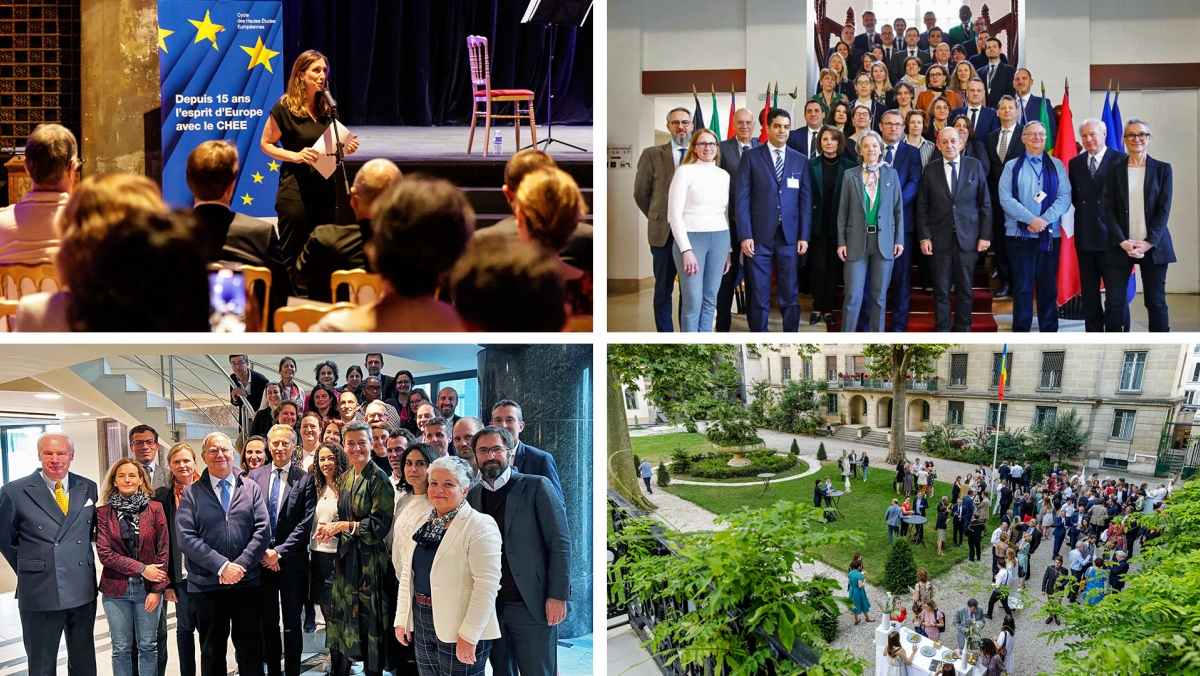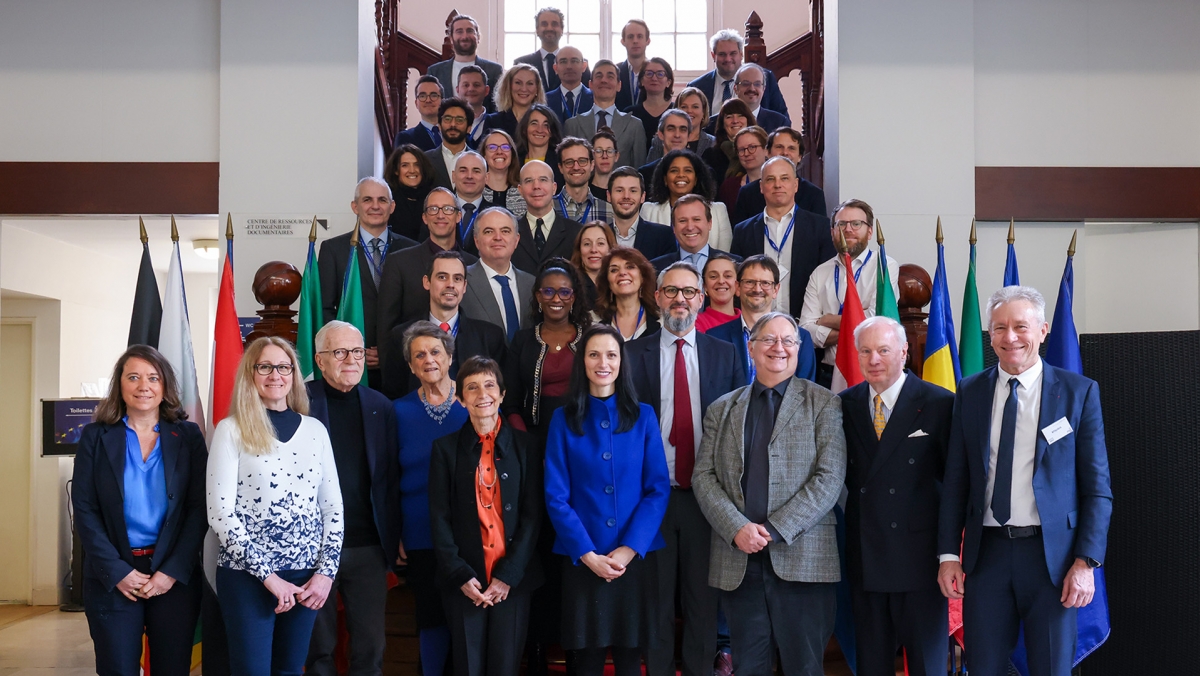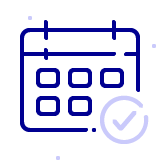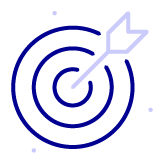Cycle of Advanced European Studies (Chee)

The Cycle of Advanced European Studies enables participants to develop privileged relationships with European decision-makers, to be part of a strong professional network and to understand the major issues and mechanisms of the European Union with a view to becoming a key actor in Europe.
Practical information
-
Location | Paris based training course • 2 avenue de l'Observatoire, 75006 Paris
-
Admission requirements | At least 6 years' experience in a responsible position
-
Duration | 35 days over a 10 month period
-
Next edition | Applications are open until November 19, 2023
-
Cost | From €6,000 € to €16,000 depending on the applicant's background
-
Diploma obtained | Not leading to a diploma
-
Contact | Philippe Roman, Head of the Cycle of Advanced European Studies
03 88 21 45 13 • philippe.roman@insp.gouv.fr
Applications are open until 12 January 2025!

Target audience and admission requirements
The Cycle of Advanced European Studies (Chee) is aimed at high level European or third country professionals from various backgrounds: journalists, companies' executives, national trade union representatives, senior civil servants, political advisors, researchers, etc.
Applicants are expected to :
- have held a position of responsability for six years or more
- have an excellent command of French
- have at least some passive understanding of English
Titre
-
Titre
To provide an excellent programme Textedesigned to train informed and operational actors on European issues and prepare them for the rotating presidencies of the Council of the European Union
-
Titre
To provide participants with a complete command of European and international procedures, issues, constraints and challenges in the post-crisis context: migration, coordination of health policies, development of digital technologies, economic recovery, social cohesion, implementation of the Green Deal, fight against terrorism...
-
Titre
To develop direct and privileged relationships among European decision-makers and to expand the network of leading figures working on European issues
-
Titre
To train participants to organize and conduct meetings and negotiations in a multicultural environment with a view to helping potential allies adopt common positions
-
Titre
To provide advice on the preparation and implementation of strategies of influence and communication towards European institutions and Member States
-
Titre
To encourage the Europeanisation of new profiles and enable each participant to analyse European public policies and their main issues in order to contextualise the actions of his or her structure within the European strategic environment


Curriculum
The Chee explores the current major issues in Europe and puts them into perspective: industrial and digital development, environmental issues and climate change, internal and external safety, social and public health issues... The Chee’s educational approach is based on practice and action, which helps decision-makers acquire the skills they need to evolve in a European context.
The participants of the Cycle of Advanced European Studies benefit from several key events:
-
A special exercise on how to build an influence strategy towards the European institutions
-
A serious game focusing on the implementation of a directive and how lobbying works in the European Parliament
-
A 5-day negotiation exercise, divided into two phases. First, a 3-day mission in a European capital city, in order to understand the visiting state's position on a current negotiation issue, followed by a 2-day negotiation simulation exercise in real conditions
They also benefit from several immersions and study visits:
-
A 5-day trip to Brussels, including a 1-day field placement in the European institutions;
-
A 3-day study visit to Strasbourg, where participants meet European Parliament stakeholders;
-
A 3-day study visit to an EU capital city or to a neighbouring country where a specific European issue is being dealt with.
Titre
This training is compatible with holding high-level positions:
-
Titre
A 35-day training period organised in 10 modules and scheduled over 10 months (3 to 5 days per month)
-
Titre
Europe as a training ground participants travel to many EU Member States

Training strengths
- The Cycle of Advanced European Studies focuses on current issues and respects both the principle of freedom of speech and the Chatham House Rule;
- Each year, the Chee is placed under the patronage of a prominent European figure;
- It provides access to an extensive and international network: 45 nationalities have been represented since 2007 and more than 750 European executives and representatives of all professional sectors have benefited from this network.
Mariya Gabriel • Patron of the 2024 cohort

Cost
There are 3 applicable fees based on the applicant's background :
|
Option 1 | €6,000
|
|
Option 2 | €10,000
|
|
Option 3 | €16,000
|
The tuition fees cover all costs related to teaching and accommodation as well as some of the food costs during the modules. They also include group travel costs (only from and to Paris). It is the responsibility of participants' employers to meet individual travel costs.
The deadline for the payment of the tuition fees is at the beginning of the first module. A single payment must be made to the INSP's accounting officer. A 30% deposit will be charged to organisations choosing to pay for services rendered only. The INSP has an activity registration number → article R.6351-6 du Code du travail. Private companies can cover some or all of their employees' tuition fees as part of professional training expenses, but coverage varies by company.

Titre
-
Titre
Provisional calendar
35 days in the heart of Europe over a 10 month period
• 1 module of 5 days (missions in several groups to different EU member states then simulation of a European council in Paris)
• 2 modules of 4 days in Strasbourg and Brussels
• 1 module of 3 days in an EU Member State
• 1 module of 4 days and 5 modules of 3 days in Paris
Step Date Registration until 12 January 2025 Publication of admission results* 27 January 2025 Module 1 • Paris
Integration seminarfrom Tuesday 11 February
to Friday 14 February 2025Module 2 • Paris from Wednesday 5 March
to Friday 7 March 2025Module 3 • Strasbourg from Monday 31 March
to Thursday 3 April 2025Module 4 • Paris from Wednesday 23 April
to Friday 25 April 2025Module 5 • Brussels from Tuesday 20 May
to Friday 23 May 2025Module 6 • European capital
Class study tripfrom Wednesday 25 June
to Friday 27 June 2025Module 7 • Paris from Wednesday 17 September
to Friday 19 September 2025Module 8 • European capitals • Paris
Missions in various european capitalsfrom Monday 13 October
to Friday 17 October 2025Module 9 • Paris from Wednesday 5 November
to Friday 7 November 2025Module 10 • Paris
Closing modulefrom Wednesday 3 December
to Friday 5 December 2025* Admission results are available online for 2 months from the date of publication, i.e. until 27 March 2025.
-
Titre
Registration Applications are open until 12 January 2025!
Apply online

Contact
Any questions? Please do not hesitate to contact us!
Philippe Roman, head of the Cycle of Advanced European Studies
Phone : +33 3 88 21 45 13
